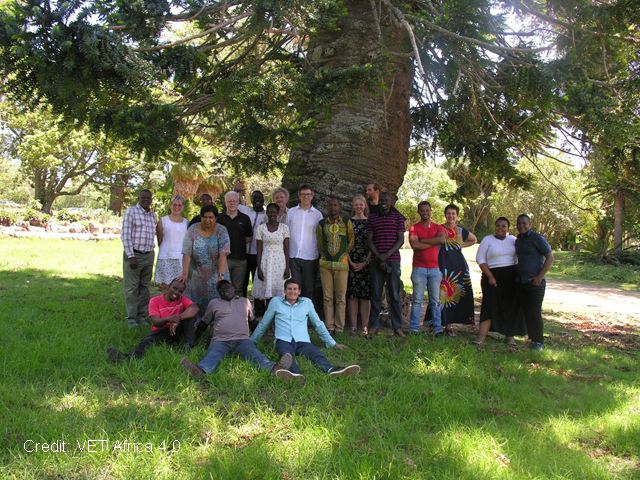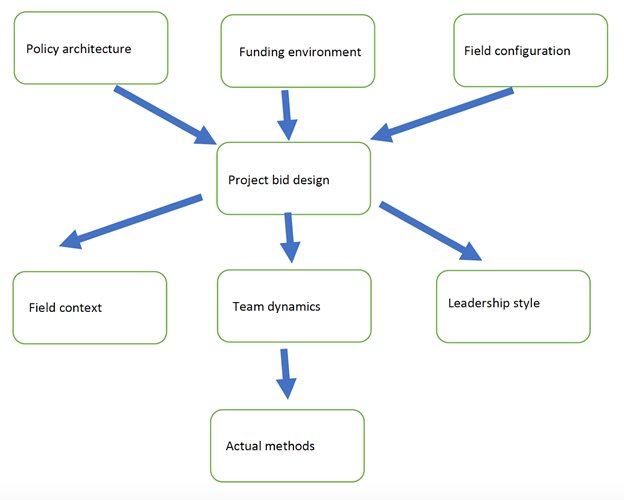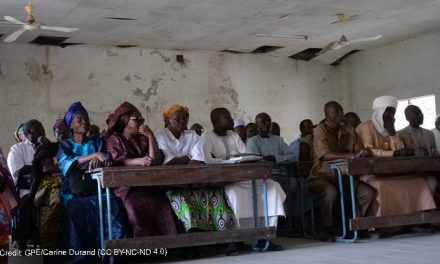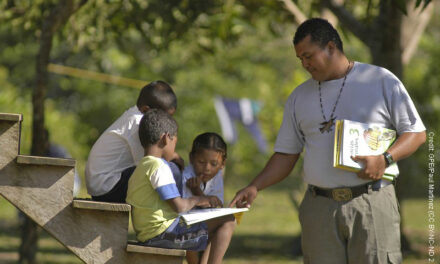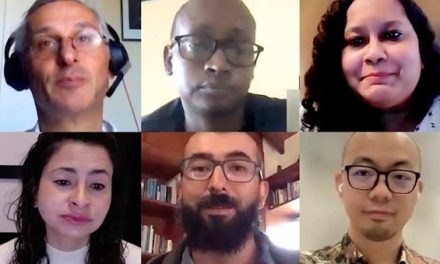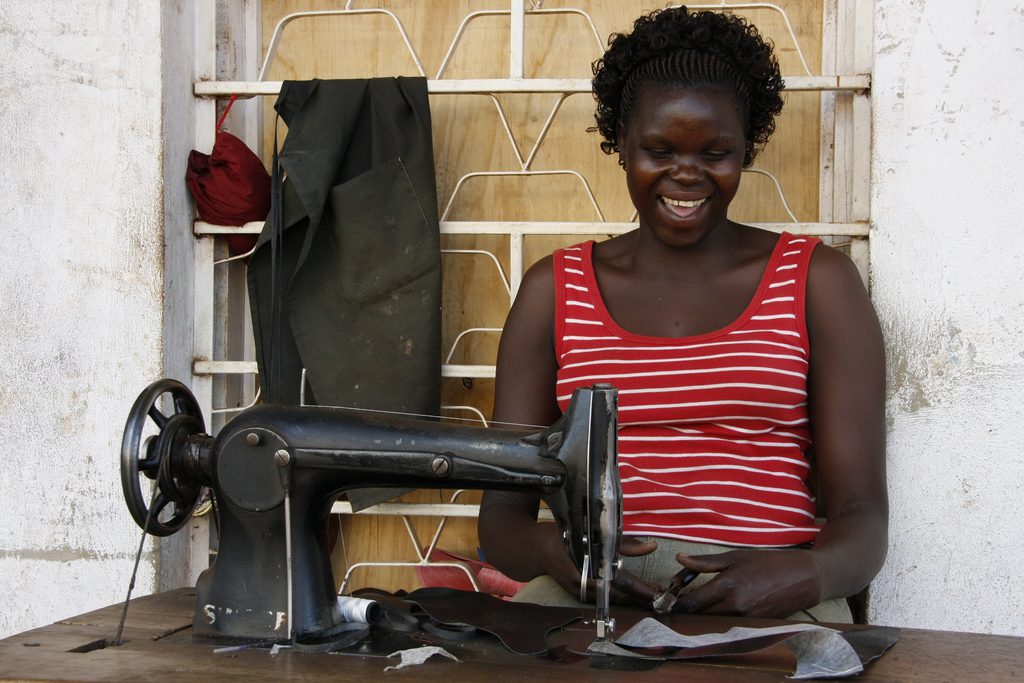This article was written by David Monk, Centre for Community Based Research and Lifelong Learning, Faculty of Education and Humanities, Gulu University; Palesa Molebatsi, Centre for Researching Education and Labour (REAL Centre), University of the Witwatersrand; Luke Metelerkamp, Environmental Learning Research Centre, Rhodes University; and Simon Mcgrath, UNESCO Chair in International Education and Development, School of Education, University of Nottingham.
The conjuncture of a renewed decolonisation debate, the pandemic and greater climate action urgency provide a moment for revisiting long standing aspirations towards just and sustainable research practices. Here we reflect on our learning through working together in a three-year GCRF project bringing together a team of 20 researchers from four universities in England, South Africa and Uganda.
VET Africa 4.0 was designed to develop a new theoretical model for vocational education and training (VET) in Africa. Originally, we were less focused on new research approaches but our awareness and understanding of these issues developed over time.
The project was a partnership between four research chairs, which helped reduce power imbalances. We were also determined to maximise wider team involvement in the project’s processes. For instance, writing a book as a collective and ensuring multidirectional flows of team members between the three countries.
Like VET itself, VET research in Africa has typically been extractive. Many researchers have been agents of the state or donors and negotiated fieldwork from this position, reinforcing hierarchical relationships with respondents. Practitioners have largely believed that researchers exist to judge them, with most judgments being negative. This has generated a legacy of mistrust.
Two cases in this research were largely focused on the formal sector and we struggled to move beyond this legacy. With limited embeddedness in the case study sites, lockdown constrained possibilities for trust building. However, our other two cases show more possibilities for less extractive, more equitable ways of researching.
The above project design provided space to develop a community-engaged research approach, better aligned with the empowering and capability-oriented theoretical underpinnings of the research in Gulu, Uganda and Alice, South Africa.
We decided from the outset that our research should practically contribute to youth livelihoods and community development by developing transdisciplinary and inclusive ecosystems of learning in VET, where research is but one component among many diverse learning needs. For example in Gulu, it became apparent that institutions are short of equipment such as tractors. So we gathered together a diverse group of people from agriculture who decided on, developed and tested a pilot programme for tractor driving and repair. The process required negotiation among parties with diverse backgrounds and differing needs. NGOs, government, university, private sector, traditional cultural leaders and students were all involved.
In the process of working through the research, we debated curriculum reform, pedagogy and assessment, extension work and history of cooperatives, funding and programme development and initiated a longer term partnership for learning and advocacy in VET. The learning here was primarily oriented towards learning how to learn together, and empowering local communities to experiment with new ideas without fear of failure. The practical application of the research was far more visible and engaging for implementers than a policy document. We also gained credibility as did our findings of democratising overly hierarchical structures, because we visibly engaged in democratising the research process ourselves.
In both Gulu and Alice, we found ourselves theoretically and methodologically drawn to a metaphorical 45 degree line along which mediation is possible between very hierarchical structures on the one hand and high levels of economic inequality and informality on the other. We repeatedly came up against the need to overcome formal structures, spaces and traditions (university, private sector, government) to engage on the ground. This required exploration of how to create the spaces within and between institutions in order to follow the needs of the situation, rather than the protocols of the bureaucracy. Often, this meant working at the fringes of institutional mandates, to create wriggle room for ourselves and other actors in order to come together to form new connective tissues and ideas of what VET could and should be.
We argue that if done properly, collaborative processes by definition mean letting go of control. Compared to conventional evaluative forms of VET research, the embedded action research approaches in Alice and Gulu were chaotic. The needs of the people we were working with changed over the course of the project, which meant responding to feedback and following evolving situational needs and allowing plans to change.
Valuing multiple knowledges meant remaining continually aware of our own biases relating to where expertise resides and open to the knowledges that all parties were bringing to the process. This resulted in much richer, multi-directional learning processes.
Researchers in universities need to establish stronger bonds of trust and relationships for longevity. There are three ways through which this might be done:
- The first is to recognise the transdisciplinary nature of community problems. Researchers in universities are trained to work within disciplinary boundaries. So, often, the ways in which academic research is conceptualised are located within rigid disciplinary boundaries. This constrains the ability of researchers to understand complex contexts.
- The next way to build trust is for researchers to embed themselves within communities. This can be done through repeat interactions and reciprocal relationships with the community. With respect to this, funders have a responsibility to create enabling systems. This requires better funding structures and a shift away from the culture of output counting.
- This brings us to the third way through which stronger bonds can be established. An ethical move away from “data robbing” is required. Researchers need to allow the kind of narrative building that surfaces power relations. This can be done if researchers allow the community to hold them accountable by validating learnings from the research process. This is not a straightforward process. However, it is a crucial part of learning and understanding phenomena.
A presentation on this will be made in the Research Methods theme of the 2021 Conference

